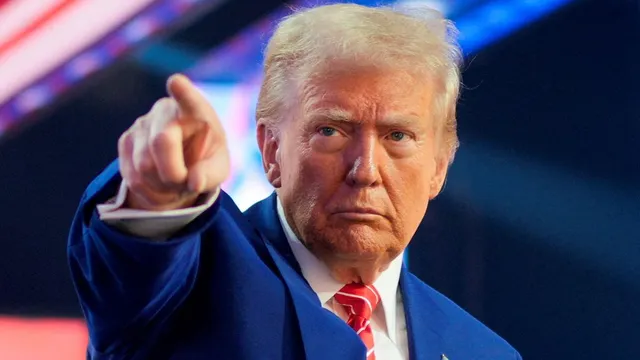- By Supratik Das
- Tue, 23 Sep 2025 08:04 AM (IST)
- Source:JND
US President Donald Trump’s order to impose a USD 100,000 one-time fee on new H-1B visa applications has raised concerns among Indian professionals, especially doctors, nurses and engineers. But government clarifications suggest that certain groups could be spared if their employment is deemed to serve the “national interest” of the United States.
Exemptions likely For Healthcare Workers
Medical professionals are expected to be the biggest beneficiaries of exemptions. US hospitals depend heavily on international doctors and nurses to serve rural and underserved regions. Nicholas Mark, a Seattle-based pulmonologist, cautioned on X, “This will be devastating in the medical field. Ten thousand out of 43,000 residency spots are filled by H-1B doctors. No hospital will pay USD 100,000 for a USD 55,000 resident salary.” Immigration attorney Sukanya Raman of Davies and Associates told Business Standard that the proclamation has scope for exceptions. “Doctors and nurses, and other healthcare workers, if need arises, may be exempt from the fee. Healthcare has historically been recognised as a national interest,” she said.
Based on reports and current hints, the following groups could be exempted:
1. Doctors and nurses in residency programs and shortage areas
2. Medical researchers in fields linked to U.S. public health priorities
3. Public health professionals addressing nationwide health needs
4. Other industries deemed essential to US welfare, such as food supply chains and defence-related roles
Who Faces The Heat?
While healthcare may find protection, most other industries face tough adjustments. The Indian IT sector, a major user of H-1B visas, is expected to feel the pinch. Firms that earlier sent thousands of engineers onsite will now need to justify the high fee by reserving visas for roles requiring niche skills. Neeti Sharma, CEO of TeamLease Digital, told Business Standard, “In the short term, fewer H-1B visas will mean fewer Indian engineers onsite. Companies will hire more local talent in the US, which raises costs and squeezes margins.” Consulting firms, Wall Street banks, and Big Tech companies like Amazon, Microsoft, and Meta, who are among the top H-1B sponsors, will also face added expenses. Jefferies estimates that higher visa costs could cut profit margins by 100–200 basis points.
But NASSCOM, the apex IT body, downplayed the impact. According to ANI, the number of H-1B visas issued to major Indian firms has already declined from 14,792 in 2015 to 10,162 in 2024. “The U.S. government has clarified that the fee will apply only to new visas, not renewals, which removes uncertainty for existing workers,” it said.
The new fee will also not apply until 2026, giving companies time to rework their strategies and strengthen local hiring in the US. But for now, Trump’s order draws a clear line, while the US healthcare system is shielded, technology and consulting firms — especially Indian IT exporters — must absorb the rising cost of American immigration.

